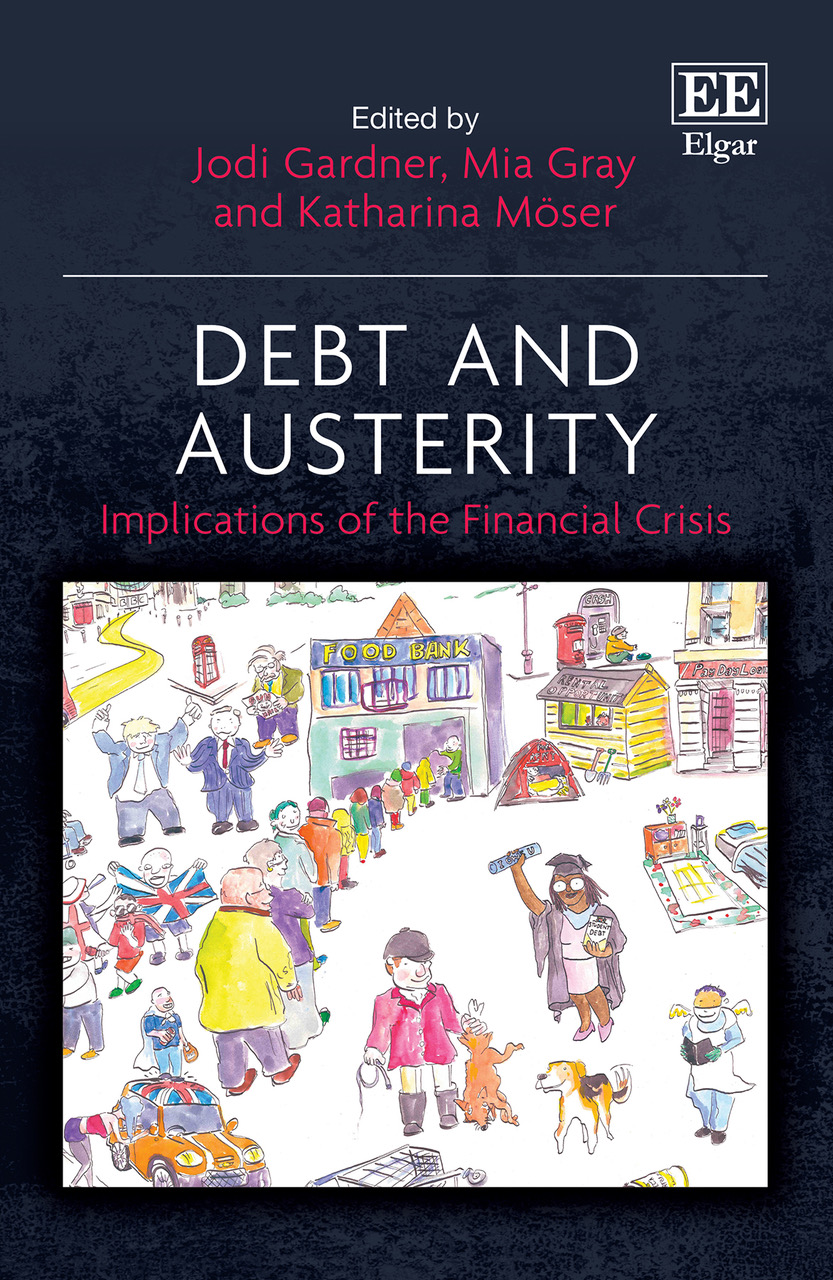Lessons from austerity - how to address national debt and inequality
“We need to ensure that it's not the most vulnerable people who can afford it the least that suffer"
A new interdisciplinary book that brings the inequalities created by austerity into sharp focus recommends ways to build a fairer society in the aftermath of the pandemic.
Debt and Austerity: Implications of the Financial Crisis was published on Friday (13 November). Dr Jodi Gardner, Director of Studies for Law at St John’s College, University of Cambridge, is one of the editors and writers of the book which examines how the social, economic and legal implications of government responses to the 2008 global financial crash shaped the world we live in today.
Work began on the new book in 2019 as the UK government announced the end of nearly 10 years of austerity, but it was completed in the nation’s first lockdown in April 2020, as the devastating impact of coronavirus became apparent. Focused on the UK, the book is a series of essays from academics and frontline workers and incorporates analysis from Sweden, Ireland, Australia, the EU and the US.

The book examines how policymakers can learn from austerity so they can avoid repeating mistakes that led to the poorest being at the ‘sharp end’ of cuts from central government – according to Dr Gardner. Now the global pandemic has plunged the UK back into financial crisis, she said the book’s findings are needed now more than ever.
Dr Gardner explained: “The book is full of pertinent pre-Covid lessons for policymakers, but now we're facing a very similar type of financial response and Government deficit, there's even more that can be learned from it. There are many parallels between the impact of austerity and Covid-19 – the people who have financially suffered the most have been those on welfare and lower incomes, zero-hour contracts, and women with caring duties.
“Covid-19 has exacerbated increasing inequalities. The North-South divide has been highlighted, women are likely to have greater caring responsibility, and young people and ethnic minorities are losing their jobs at a higher rate. That is a big theme that comes out in the book and it's something that we really should be aware of when thinking about how we recover from this pandemic.
“We also need to ensure that it's not the most vulnerable people who can afford it the least that suffer. Unfortunately, the way that society is structured, they're the ones that feel the brunt of the measures when budgets need to be tightened, not the richest.”
The book’s origins lay in a chance meeting in the St John’s College Buttery between Dr Gardner and Dr Mia Gray, Senior University Lecturer in Geography and a Fellow at Girton College. The women realised they shared an interest in the impact of austerity, albeit from different academic perspectives. Dr Gardner had attended a workshop in 2017 run by Dr Katharina Möser from the University of Birmingham, and she came onboard as a third editor.
A workshop on the challenges of debit and austerity was held at St John’s in May 2019, supported by the College. The event, which also received funding from the University of Cambridge Centre for Research into the Arts, Social Sciences and Humanities (CRASSH), brought together academics across a range of disciplines, from social policy and economics to anthropology.
Dr Gardner said: “One of the best things about the workshop was that each academic panel also had an ‘insight from practice’ speaker – people such as food bank volunteers, debt advisors or employees of Citizens Advice. They read the papers and commented from a frontline perspective, how the theories that academics were proposing reflected what was happening on the ground. The academics took that on board and incorporated the real lived experience into their work for Debt and Austerity. Two of those frontline workers also ended up producing written pieces for the book.”
“Once we start recovering from the pandemic, we really need to look at who is going to pay the price of fixing society"

The UK really began feeling the impact of austerity measures around 2010. Changes to welfare benefits and the rise in payday loans hit low-income families hard, with research showing the use of high-cost financial credit rocketed from £0.3 billion in 2006 to £3.709 billion just six years later.
In contrast, even though Scandinavian countries felt the impacts of austerity, some put inequality at the forefront of their political thinking. They increased taxes on the rich or decided it wasn't necessary to repay the government debt as quickly as the UK. “So they didn’t see the huge increasing levels of inequality that we did,” said Dr Gardner.
Now, to cope with the economic fallout of Covid-19, she argued the government needs a rethink. “The most important thing we can do is look after those who are already struggling, make sure that everyone has a welfare safety net, that people have somewhere to live, and aren't relying on food banks to survive. We are a wealthy developed country, and yet we've got a political system in place where millions of people every month need to go to charity, just to put food on their plate. So obviously, something's broken down and we need to address those inequalities,” she said.
“Once we start recovering from the pandemic, we really need to look at who is going to pay the price of fixing society. Policymakers must be encouraged to think about the consequences of their decisions as we rebuild. The living wage, as opposed to the minimum wage, is one solution that could be considered. This wage should not only take into account hours you work and how much you get paid, but also where you live and your family structure. This would ensure that every single person in our society has enough resources to live a meaningful and decent life.”
- Debt and Austerity: Implications of the Financial Crisis edited by Jodi Gardner, Mia Gray and Katharina Möser is published by Edward Elgar Publishing (hardback). The Future of High-Cost Credit: Regulating Payday Lending by Jodi Gardner (Hart Publishing) is due out in 2021.
Published: 16/11/20